Speakers called on churches and Christian organizations to strive to be a “refuge for the vulnerable” as Restaurar 2022—a conference to “restore faith in God and the church”—kicked off with a pre-conference Friday.
“Any vulnerable human being, someone designed by God, in their vulnerability, should be protected,” psychologist and trauma expert Diana Langberg declared during the first of four Friday conference sessions.
God Himself came as a vulnerable newborn, Langberg told those in attendance Friday. “If we are to be a body of Christ . . . we are to be a refuge for the vulnerable, not a place of exploitation.”
Langberg and other leading advocates for abuse survivors and church reform spoke to about 175 people gathered at Universidad Judson for the pre-conference geared toward equipping leaders. About 230 are expected today for the conference, focusing on healing for those wounded by the church or Christian leaders.
Many of those assembled for the two-day event have experienced church hurt or abuse at the hands of church leaders—and were profoundly impacted by Friday’s event.
Your tax-deductible gift helps our journalists report the truth and hold Christian leaders and organizations accountable. Give a gift of $30 or more to The Roys Report this month, and you will receive a copy of “Hurt and Healed by the Church” by Ryan George. To donate, haga clic aquí.
One conference guest, Kelley Downie, tweeted, “In the last 6 years I haven’t been able to worship Jesus through corporate song. This morning I felt like I had floated up to heaven. Thank you for being here. My heart is full.”
💝Love this
— marcinca3 (@marcinca3) May 21, 2022
Another guest tweeted, “I made it to this indescribably special event. It’s like a dream.”
I made it to this indescribably special event 🙌🏻🎊
It’s like a dream 💔😭🙏🏻💗#Restore2022
@LoriAnneThomps2 @DianeLangberg @wademullen pic.twitter.com/WI7QrbEv6L
— Mrs. Murnighan (@havengrace614) May 20, 2022
Other speakers at Friday’s pre-conference included psychologist and trauma expert, Dr. Phil Monroe; MinistryWatch President Warren Cole Smith; and anti-bullying expert, Paul Coughlin.
Abuse survivor advocate, Dr. Wade Mullen, was scheduled to speak at the pre-conference but was unable to do so due to unforeseen circumstances. In his place, author and speaker María DeMuth, who’s emceeing the conference, spoke about responding to abuse allegations in the church.
One notable absence at the conference is conference founder Julie Roys. Due to controversy involving a story Roys wrote about in her 2017 book, Redimiendo el alma femenina, Roys Bajó from leading or speaking at the conference.
How churches enable abuse & fail to care for victims
Langberg focused on explaining the nature of abuse of power and how churches may enable it.
Power is a gift meant to bless other people, she said. It can take many forms. But “sometimes it is used to appear to bless so that (spiritual leaders) can abuse.”
She added the church “has been sadly silent” when confronted with abuse because churches tend to be “seduced by the gifts” of a knowledgeable or charismatic leader.
“The ability to articulate theological truths does not necessarily mean the speaker is an obedient servant of God,” she said.
She called on churchgoers to instead focus on character.
“If numbers and growth and praise and fame were God’s measure, then Jesus was a failure,” Langberg said.
In her presentation, Langberg pointed to Ravi Zacharias, the late apologist who was found to have preyed on numerous women and used ministry funds to sue an abuse survivor, El Informe Roys has reported previously.
Signs of trouble appeared even earlier, she said, when Zacharias was accused of inflating his academic credentials. Zacharias denied it at the time.
“Deceit is a narcotic and it deadens us to our own wrongdoing,” Langberg said. “We are never — underline the word, never — doing God’s work when we pursue a seemingly godly goal by way of ungodly means.”
Deception, she said, is the “foundation” of how abusers groom their victims. But the Bible warns “against the teacher, the spokesperson, who speaks orthodoxy but whose life is false—somebody who talks like a sheep but is in fact a wolf.”
“True sheep do not eat each other. Wolves eat sheep,” she said.
🔥🔥🔥🔥
“True sheep do not eat each other” – gasps, applauseContinues: "Wolves eat sheep."@DianeLangberg
— Celeste Irwin🏳️⚧️ (@CelesteFinally) May 20, 2022
Langberg’s colleague in clinical practice, phil monroe, followed with a presentation on barriers that trauma victims may encounter during healing.
Trauma also leaves victims asking how to escape this “hell,” he said.
The way out, said Monroe, is through building healthy relationships with other people. “We rarely can find the peace and healing we need if we are isolated.”
Monroe also encouraged victims to recognize that the search for justice is separate from the journey to healing. “In this life, we may not see the justice that we’re looking for,” Monroe said.
Addressing church leaders and mental health professionals, Monroe said allies must listen to victims as the experts on their own trauma before they can really help. He added that a helper’s good character matters more than their knowledge or expertise.
Monroe said without character, an offer to help can itself become a victim’s biggest barrier to healing.
He called on victim supporters to “listen, learn, and lament.” He also urged helpers to pay attention to their own motivations when they feel the urge to step in.
MeToo/WeToo
Mary DeMuth wove her own story of being raped at 5 years old into her presentation about sexual abuse in the church. The first person she told treated her disclosure like an inconvenience, she said.
Likewise, many churches express more care for their own current reputations than for an abuse victim, she said. But churches should do the opposite—“err on the side of belief.”
She also noted at least 1 in 10 younger Protestant churchgoers have left a church because of its mishandling of sexual abuse.
“We have a PR problem, and it’s because we haven’t been brave enough to tell the truth about what’s happened in our midst,” DeMuth said.
She urged churches to bring in outside investigators to ask the hard questions in cases of alleged abuse “to figure out what really went wrong.” She also encouraged leaders to keep resources on hand to offer victims.
When Christian leaders refuse to believe whistleblowers about abuse, it is because they prefer their reputation NOW. They then make the victim the problem to preserve that reputation.
But instead, they should care about the victim in front of them.
— melissa j hogan (@melissajhogan) May 20, 2022
DeMuth closed with a reminder to leaders that “it’s not your job to prescribe a journey to someone else.” But what does help is when church leaders lament over the harm victims have suffered—when churches “weep with those who weep.”
Standing up to bullies
Paul Coughlin, founder of the anti-bullying organization The Protectors, outlined how to recognize a bully and what to do to heal from bullying.
“Bullying, sexual harassment, racism, genocide all have this in common: In order to justify the assault on the other person, we must turn them into a less-than,” Coughlin said. “We must fight that as people of faith.”
He added that “evil doesn’t look like evil” and bullies use lying and gaslighting in order to reframe their abuse. For instance, anger may instead be called passion, he explained.
Bullies do the most harm in medicine, teaching, and ministry, he said, because those are nurturing professions.
“Serial bullies should never be allowed back into leadership, ever,” he said later in the presentation.
Holding ministries accountable
Warren Cole Smith, president of MinisterioReloj, addressed an issue he said underlies much of the abuse in the church—the love of money and bad governance.
Smith offered practical steps to keep ministries accountable and avoid missteps related to finances or governance. Among other tips, he suggested donors to Christian nonprofits should require organizations to provide their IRS Form 990 filings and disclose the names of their board members.
A longtime journalist, Smith said whistleblowers who speak up about misconduct within their own organizations make it possible for media reporters to hold ministries accountable.
“It is foolish to expect ministries to police themselves,” he said, so Christian journalists fill a vital role. But “we journalists can’t do our jobs without whistleblowers.”
.@WarrenColeSmith: To avoid financial & governance disasters, here are 9 practical suggestions
Ex: #2 get a copy of latest financial statement for any ministry you give to—even if u have no idea how to read it! Just asking for it will tell u a lot about the ministry#restore2022 pic.twitter.com/BpExX3oUvK
— Josh M Shepherd (@JoshMShep) May 20, 2022
Conference continues
Restore continues today with five more sessions, including one by Langberg on “Where’s Jesus When There’s Abuse?” Lori Anne Thompson, a victim of abuse by the late Ravi Zacharias, and author and professor Karen Swallow Prior, will discuss effective victim advocacy. Also speaking today are author and theologian, Scot McKnight, Wade Mullen, and author and ministry leader, Lina Abujamra.
For at least one conference registrant, Restore has offered a chance to rediscover his role as a Christian trying to reengage in church after being hurt.
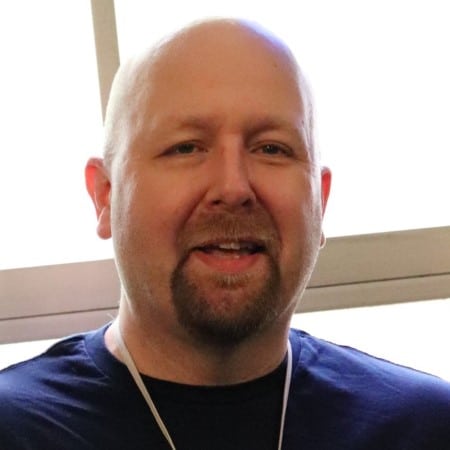
Jason Kanz, a neuropsychologist from Eau Claire, Wisconsin, said he had been on both sides of church trauma, as a lay leader who was also traumatized. He is at Restore along with some fellow former church members he’s since patched up relationships with, he said.
“For me, kind of recognizing the power of the church to really harm people has been a big piece of this, and really trying to find where do I fit in church at this point?” Kanz said.
He said Monroe’s call to find healing in relationship was “scary” to him, given his experience.
But Kanz said Friday’s sessions reminded him “that Jesus is different than a lot of what we see in the churches.”
One solution Kanz found personally relevant was Smith’s call to speak up about wrongdoing.
Kanz called Smith’s statement that journalists rely on whistleblowers “powerful. But it’s true.”
 Sarah Einselen es una escritora y editora premiada que vive en Texas, EEUU.
Sarah Einselen es una escritora y editora premiada que vive en Texas, EEUU.




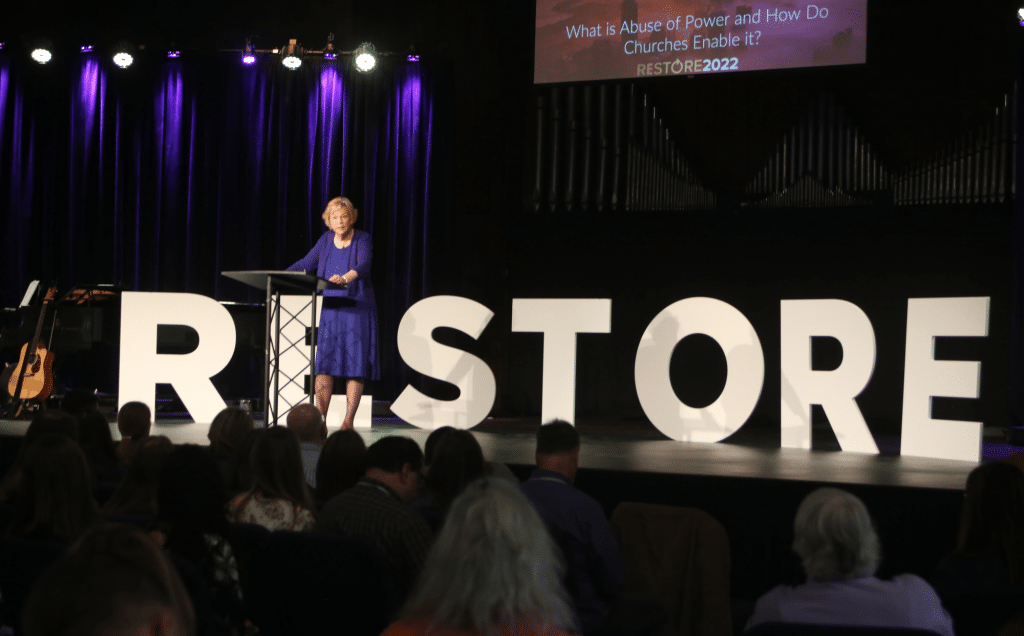
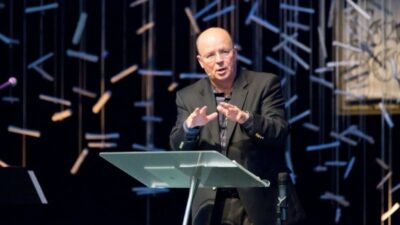

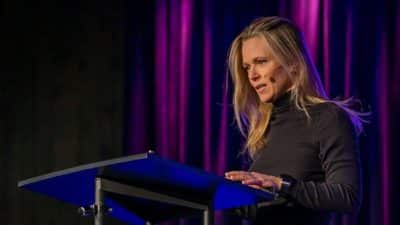




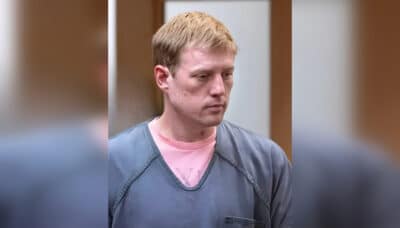
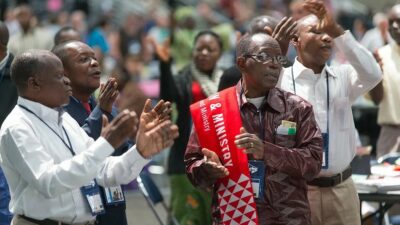






5 Respuestas
A wonderful synopsis for those of us who didn’t get to be there. It sounds amazing. Thank you, Sarah!
I want to say to Julie that her self imposed absence from this conference is an example for all of us. She admits to an issue in her book where she sees that she was wrong. And what does she do now. She sees it, she admits it and then tries to do everything she can to make it right. If all in leadership could respond this way, how different things would be.
Agreeing with you. And that’s exactly what this conference is all about. A lack of integrity concerning leadership.
Thank you. I enjoyed reading about this conference. I hope there will be a synopsis of Restore 2022 Day 2.
Thank you Julie for help in setting up this conference. There are many hurting brothers and sisters who need a ray of hope and comfort. Blessings to you and your family as you navigate these troubled waters. I have been impressed with your gifts as a writer and how you have responded to criticism.